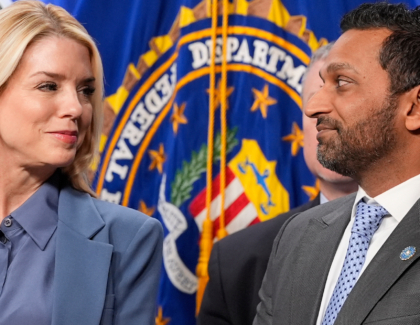Sign up for the daily CJR newsletter.
In his “Stories I’d like to see” column, journalist and entrepreneur Steven Brill spotlights topics that, in his opinion, have received insufficient media attention. This article was originally published on Reuters.com.
1. Teflon Tim and the Obama Keystone Cops:
Did the First Amendment get amended when I wasn’t watching so that freedom of the press is guaranteed except when it comes to writing about Timothy Geithner?
What else could explain how the former Treasury Secretary’s name could not be found in any of the stories last week about the Obama administration’s decision to postpone for a year the Obamacare requirement that employers with 50 or more employees must provide health insurance or pay a penalty of $2,000 per employee?
The explanation for the postponement was that the rules, instructions, and reporting forms necessary to implement the requirement could not be written in time. The Treasury Department has responsibility for that paperwork and has had three years and three months to get it done. Geithner was in charge of Treasury for all but five of those 39 months.
Try a Google news search for any combination of “Obamacare employer mandate delay” and “Geithner” and you get nothing. How great is that — if you’re Geithner? And how emblematic is that of the press’s widespread failure to cover how well, or badly, the Obama administration governs?
In a parody of the transparency and fresh approach to governing that candidate Obama promised in 2008, the Treasury Department announcement of the delay came in the form of a blog post late Tuesday night from an assistant Treasury secretary, who spun it with this hilarious headline: “Continuing to Implement the Affordable Care Act in a Thoughtful, Careful Manner.”
More time than the 39 months spent so far was needed, the blog post explained, in order to “simplify the new reporting requirements” following concerns expressed by business groups about “the complexity of the requirements” that had been circulated in draft form.
Other than Time magazine’s Joe Klein I don’t know of any reporter who has paid attention to the Obama administration’s glaring incompetence at the basic chores of government.
Can’t someone tell us why Geithner and his team couldn’t get their homework done in 39 months? Is 39 months too fast to be “thoughtful and careful?” What happened? Why wasn’t the White House staff monitoring them from the day the bill passed to make sure the work was getting done? What about the Office of Management and Budget, which was run during most of those 39 months by Peter Orszag and Jacob Lew (who now runs Treasury) and which is supposed to supervise regulation-writing at federal agencies?
Am I missing something? Is this all a hidden part of the Republican conspiracy to thwart Obama? Did Mitch McConnell slip stupid or lazy pills into the Treasury Department water fountains?
Nailing down this story is especially important because critics of Obamacare say the law is so hopelessly complicated that Jack Welch and a six sigma team from GE couldn’t implement it. Does the fact that highly-regarded people like Geithner, Orszag, and Lew failed to get this done prove their point? Or did team Obama simply fail to remember that getting a landmark law passed is the beginning, not the end, of their work? Are the Obama people Ivy Leaguers when it comes to policy and keystone cops when it comes to governing?
The implementation of Obamacare’s impending state insurance exchanges is a far more onerous challenge than implementing the employer insurance coverage requirement. Does this failure at the easier job suggest that the exchanges, due to be online on October 1, will also be delayed, contrary to the repeated promises of the Obama administration? Or will the exchanges be saved by the fact that responsibility for them rests not with Treasury but with the people who run Medicare and Medicaid (and who I think do a great job)?
With that in mind, if Treasury is so bad at implementing the parts of Obamacare for which it is responsible, and given what we now know the lousy job that its Internal Revenue Service division does enforcing the rules for granting tax exemptions, why haven’t reporters taken a look at how well Treasury does some of its other jobs? Is there any reason to assume that things are fine at the Bureau of Engraving and Printing, or that Treasury is doing a good job selling bonds or enforcing trade sanctions against terrorists or rogue countries, such as Iran? What about collecting taxes and nailing tax cheats?
2. Profiling the low-profile CRP:
I could tell you in about 90 seconds how much Exxon Mobil contributed in the last five or 10 years to members of Congress holding a hearing on oil company tax breaks.
Or how much the NCAA spends on lobbying and what it lobbies for.
Or how much the hospital, drug, and medical device industries gave to members of the Senate Finance committee who held a hearing last month on healthcare pricing transparency.
Or who the leading funeral industry lobbyist is.
I’d simply go to Opensecrets.org, the website of the Washington-based Center for Responsive Politics. It’s an amazing collection of data related to federal campaign finance and lobbying. Better yet, its search functions are so good that the types of information I described above really are only seconds away.
More recently, the Opensecrets.org website, led by highly regarded former Time and Wall Street Journal reporter Viveca Novak, has begun publishing a blog and newsletters featuring a variety of important money-related stories. (Current examples: “Top Recipients of ‘Lobbyists’ Cash, 2013: An OpenSecrets Analysis” or “Offshore Drilling Bills’ Sponsors, Cosponsors Received Big Bucks From Oil Industry.”)
CRP is a nonprofit that exists on tax-deductible contributions and the sale of special data searches. Its latest financial report filed with the IRS and covering 2011 shows annual revenue of about $1.4 million, with about half coming from donations and half coming from these special data projects. I bet the numbers are a lot higher lately as CRP’s profile and the sweep of what it reports have grown.
I’ve used the site repeatedly and I have seen it increasingly cited in all kinds of political stories. It’s also been praised as a great new resource, repeatedly by other media. But I’ve never seen a comprehensive story about CRP, including profiles of executive director Sheila Krumholz and its board of directors (who seem to be a relatively low-profile group for such an important organization). I’d also like to know how CRP got started, how it operates, what its greatest challenges are, how others in Washington assess its work, and what plans it has to expand the range and impact of the information it gathers.
In that regard, I’ve long had a fantasy that, with its great data crunchers and obvious moxie, CRP could probably make happen — if C-Span is willing: When C-Span shows a House or Senate vote or a House or Senate committee hearing, CRP could give C-Span the relevant data so that along with the chyron showing the senator’s or congressman’s name there would be a listing of the amount of money he or she has taken in the last four or eight years from the interest groups most affected by the issue being debated.
If C-Span is unwilling, CRP could at least blog a daily report linking each member’s money haul to that day’s hearings or votes so that other news organizations could use it. Sure, putting the dollars next to the names on a continuous basis would be embarrassing, probably as embarrassing to Washington as the reports of cash deliveries to Hamid Karzai were to the Afghan leader. But that would be the point.
Has America ever needed a media defender more than now? Help us by joining CJR today.






